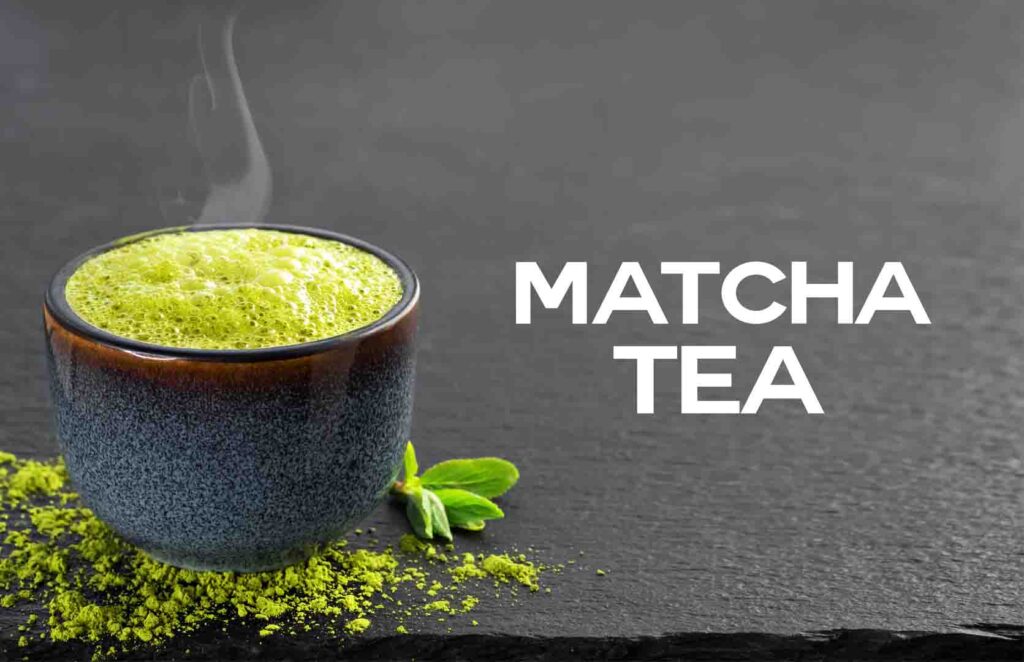Nature’s Gift in a Cup: Unlocking the Health Benefits of Matcha Tea
Matcha tea, derived from the powdered leaves of the Camellia sinensis plant, has been celebrated for centuries in Japan for its vibrant green color, unique flavor, and numerous health benefits. While traditional green tea is brewed by steeping the leaves, matcha tea offers a more concentrated and potent experience, as the whole leaves are ground into a fine powder and consumed. This article will delve into the remarkable health benefits that make matcha tea a true nature’s gift in a cup.

Rich in Antioxidants:
Matcha tea is a powerhouse of antioxidants, particularly catechins, which are potent compounds known for their ability to combat oxidative stress and protect the body against damage caused by free radicals. Epigallocatechin gallate (EGCG), the most abundant catechin in matcha tea, has been extensively studied for its potential anti-cancer, anti-inflammatory, and neuroprotective properties.

Boosts Energy and Mental Clarity:
Matcha tea contains a moderate amount of caffeine, which provides a gentle energy boost without the jitters or crashes associated with other caffeinated beverages. Alongside caffeine, matcha tea contains an amino acid called L-theanine, which promotes relaxation and mental clarity. The combination of caffeine and L-theanine creates a unique synergy that helps to improve focus, concentration, and productivity.
Enhances Calmness and Reduces Stress:
The L-theanine content in matcha tea not only improves mental focus but also induces a sense of calmness and relaxation. L-theanine promotes the production of alpha waves in the brain, which are associated with a state of wakeful relaxation. Regular consumption of matcha tea has been linked to reduced stress levels and an overall sense of well-being.

Supports Detoxification:
The vibrant green color of matcha tea is indicative of its high chlorophyll content. Chlorophyll, the pigment responsible for photosynthesis in plants, is known for its detoxifying properties. It aids in eliminating harmful toxins, heavy metals, and chemical pollutants from the body, promoting a healthy and vibrant system.
Boosts Metabolism and Aids in Weight Loss:
Matcha tea has been shown to increase metabolism and promote fat oxidation, making it a potential ally in weight management. The combination of caffeine and catechins stimulates thermogenesis, the process by which the body generates heat and burns calories. Regular consumption of matcha tea, along with a balanced diet and exercise, may aid in weight loss efforts.

Supports Heart Health:
Several studies have suggested that matcha tea may have a positive impact on heart health. The high antioxidant content, especially the EGCG catechin, helps to reduce cholesterol levels and improve lipid profiles. Additionally, matcha tea has been associated with lower blood pressure and a reduced risk of cardiovascular diseases.
Supports Immune Function:
Matcha tea contains various nutrients, including vitamins A, C, and E, as well as minerals such as potassium and zinc, which play crucial roles in supporting a healthy immune system. These nutrients, along with the tea’s antioxidant properties, help strengthen the body’s natural defense mechanisms and protect against infections and diseases.

Promotes Healthy Skin:
The antioxidants in matcha tea help protect the skin from damage caused by free radicals and environmental factors. Regular consumption of matcha tea can contribute to a more youthful and radiant complexion. Additionally, some studies suggest that applying matcha tea topically may help reduce inflammation and improve skin health.
Supports Digestive Health:
Matcha tea is known to have a calming effect on the digestive system. The catechins and other compounds in matcha tea can help alleviate gastrointestinal distress, reduce inflammation in the gut, and support a healthy gut microbiome. This can aid in digestion, alleviate symptoms of indigestion, and promote overall digestive wellness.

Boosts Brain Function and Memory:
The combination of caffeine and L-theanine in matcha tea not only enhances focus but also improves cognitive function and memory. Matcha tea stimulates the production of dopamine and serotonin, neurotransmitters that promote mood, concentration, and memory retention.
Promotes Oral Health:
Matcha tea contains compounds with antibacterial properties that help combat oral bacteria and reduce the risk of tooth decay, gum disease, and bad breath. The tea’s catechins inhibit the growth of bacteria, protecting the teeth and gums, and promoting overall oral health.
Balances Blood Sugar Levels:
Matcha tea may help regulate blood sugar levels and improve insulin sensitivity. The catechins in matcha tea have been found to inhibit certain enzymes that play a role in glucose metabolism, potentially reducing the risk of type 2 diabetes and aiding in blood sugar management.

Enhances Exercise Performance:
The combination of caffeine and other beneficial compounds in matcha tea can improve endurance, increase fat oxidation, and enhance overall athletic performance. Matcha tea provides a natural energy boost and helps the body maintain steady energy levels during physical activity.
Supports Liver Health:
The chlorophyll content in matcha tea assists in the detoxification process, aiding the liver in eliminating toxins and promoting liver health. Regular consumption of matcha tea can help protect the liver from damage caused by environmental toxins, alcohol, and certain medications.
Conclusion:
Matcha tea is much more than a delightful beverage; it is a treasure trove of health benefits. From its potent antioxidant properties to its ability to boost energy, promote relaxation, support detoxification, aid in weight loss, and enhance heart health, matcha tea offers a range of advantages that make it a valuable addition to a healthy lifestyle. So, indulge in a cup of matcha tea and experience the wonders it brings to your well-being, both inside and out.
